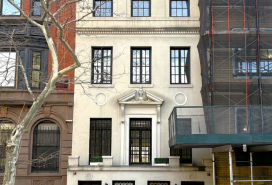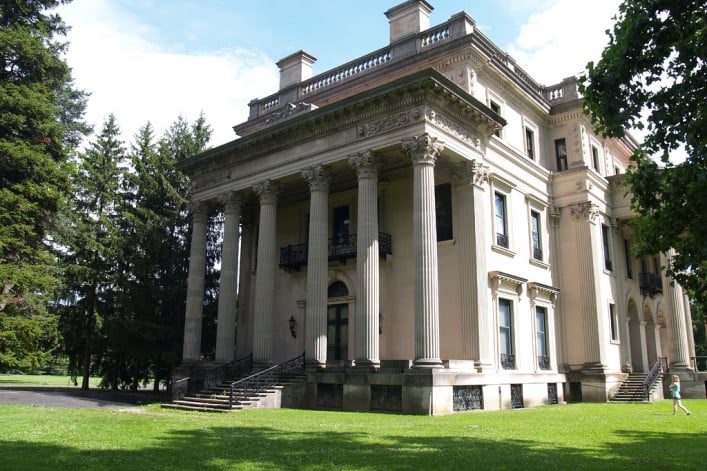Are New Yorkers about to get hit by another mansion tax?
If you're in the market to buy an apartment over $1.75 million, you may see a new tax added to your closing costs if the New York City Council has its way.
The Council has proposed a mansion tax of 1 percent over properties valued over $1.75 million and a tax of 1.5 percent on those costing more than $5 million, according to the Wall Street Journal. The tax, according to the paper, would pay for social programs for youth, immigrants, and women, and will have to be approved in Albany (which last year objected a similar measure proposed by Bill De Blasio). The idea is that it makes up for deficits in property taxes for high value residences, according to the Council.
"The City Council is committed to tackling socioeconomic inequality head on through fair and fiscally responsible budgeting and this proposal is an important part of that goal,” speaker Melissa Mark-Viverito said to Brick Underground in a statement. “New York City thrives when we all rise together.”
The tax would likely affect quite a few New Yorkers, considering that, according to the most recent Douglas Elliman market report, the median price for a Manhattan apartment is $1.13 million. The median luxury apartment is a whopping $6.64 million.
The proposal comes amid talk that the luxury market is cooling in this part of the world. But real estate attorney Edward Mermelstein, who is against the proposal, says a tax on apartments around $2 million doesn't affect the super high-end buyers who are buying 8-digit apartments. Instead, it affects the more bustling part of the real estate market.
"It may, indeed, motivate people on both the buying and selling side to move more quickly if their apartments are in that price range," he says. But he thinks it's a big mistake, especially in a city where a $2 million apartment is not considered all that high-end. "The tax would create no jobs and only be used to grow government," he says.
"City and state government are running out of things to tax, and they always go back to old faithful—real estate. One day they're going to kill the golden goose," says real estate attorney Aaron Shmulewitz of Belkin Burden Wenig & Goldman LLP. "If you increase the price of something by 1 to 2 percent, do you think it's going to help sales of the item or hurt sales of the item? If you can get the same property for $100,000 less in another place, you're going to buy it in another place."
Shmulewitz points out that the city tax would be in addition to the 1 percent state mansion tax on transactions over $1 million (which buyers pay), and city and state transfers taxes which total around 2 percent (which are paid by the seller, except in the case of new development), as well as the 1 to 2 percent mortage recording tax buyers of anything other than co-ops pay. "And they could also just as easily extend the mortgage recording tax to co-op loans," he says.
There is a tipping point, even in our market, he says, "increasing the 'house’s take' on transactions will invariably tamp down the demand, and drive down prices, for real estate," he says. "Why can't the city cut back on spending instead of increasing revenue sourcing all the time?"
You Might Also Like

























